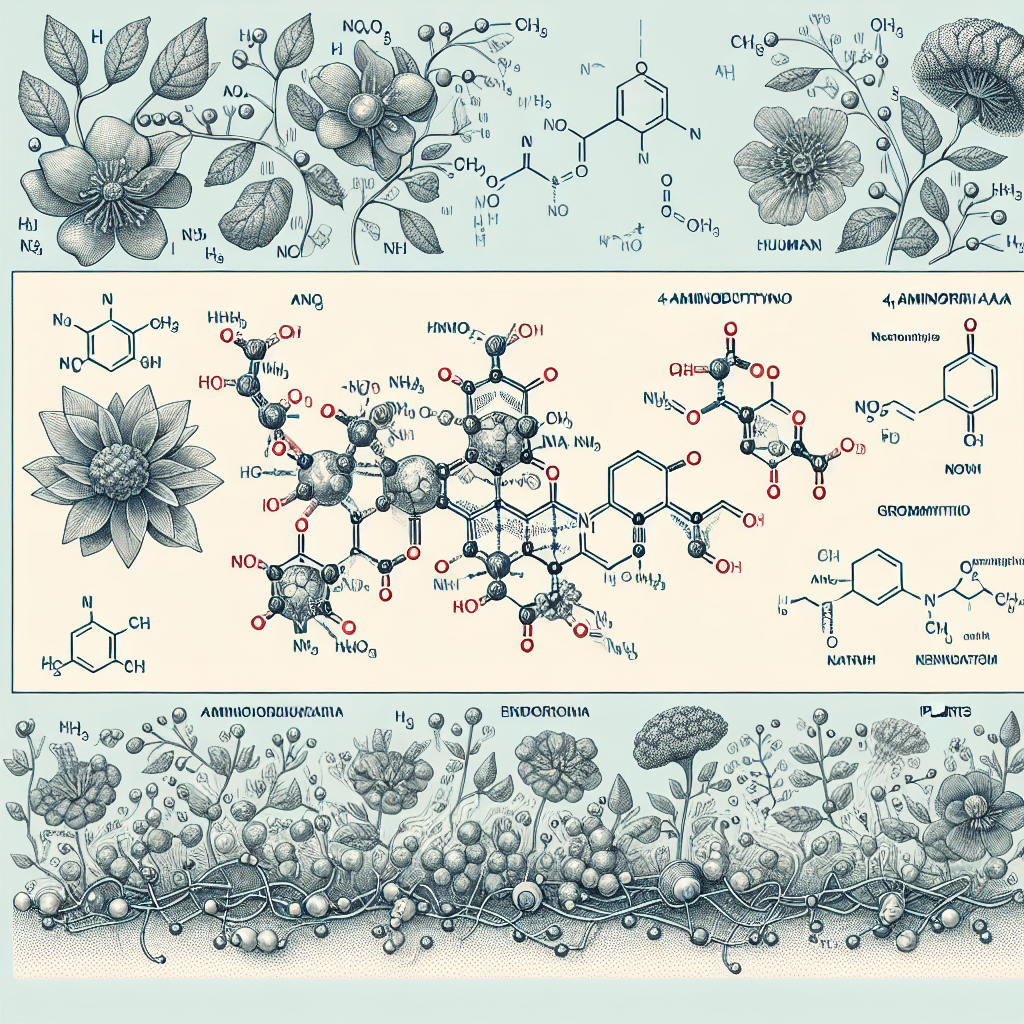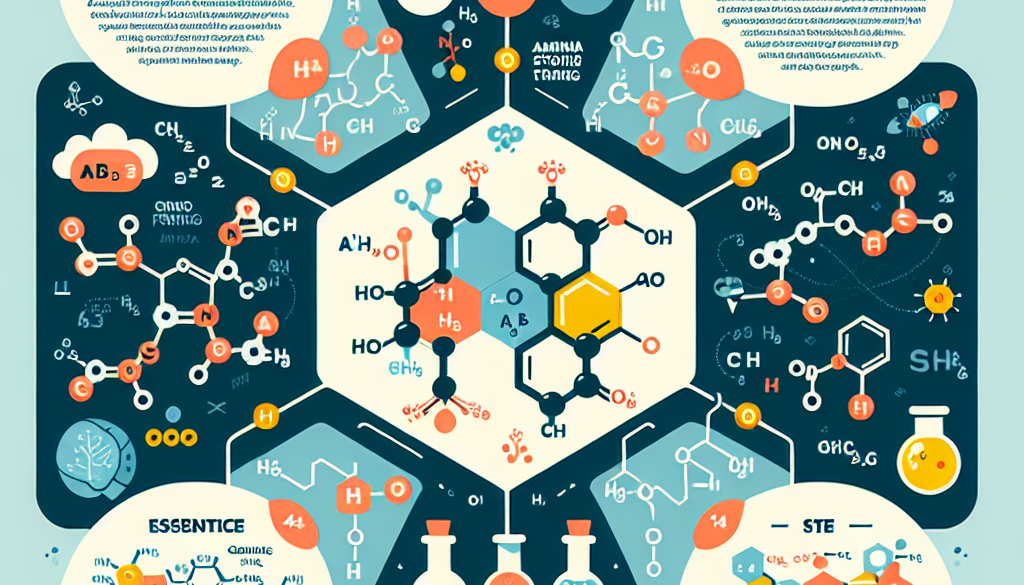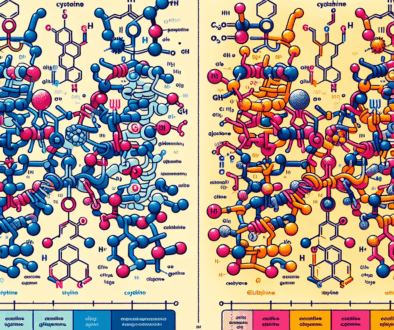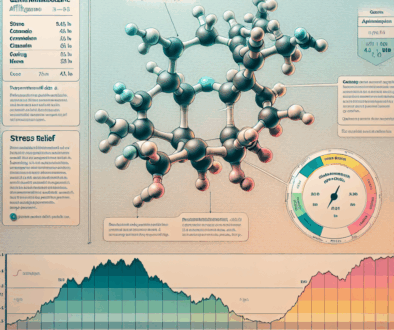4-aminobutyric Acid Facts and Uses
-
Table of Contents
- 4-Aminobutyric Acid (GABA): Essential Facts and Diverse Uses
- Understanding 4-Aminobutyric Acid (GABA)
- Chemical Structure and Function
- Role in the Nervous System
- Health Benefits and Therapeutic Uses of GABA
- Stress and Anxiety Reduction
- Improvement of Sleep Quality
- Enhancement of Cognitive Function
- Management of Epilepsy and Seizures
- Uses of GABA in Everyday Life
- Dietary Supplements
- Functional Foods and Beverages
- Yoga and Meditation
- Conclusion: Key Takeaways on GABA
- Discover ETprotein’s High-Quality Protein Products
4-Aminobutyric Acid (GABA): Essential Facts and Diverse Uses

4-Aminobutyric acid, commonly known as GABA, is a naturally occurring neurotransmitter that plays a crucial role in the human nervous system. Its primary function is to inhibit nerve transmission in the brain, calming nervous activity. This neurotransmitter is a key element in promoting relaxation, reducing stress, and improving sleep. In this article, we will delve into the fascinating world of GABA, exploring its functions, benefits, and the various applications it has in both the medical field and everyday life.
Understanding 4-Aminobutyric Acid (GABA)
GABA is an amino acid derivative that acts as an inhibitory neurotransmitter in the central nervous system (CNS). It is synthesized in the brain from glutamate, another amino acid, through the action of the enzyme glutamic acid decarboxylase (GAD). GABA’s role as an inhibitory neurotransmitter means that it helps to balance the excitatory signals in the brain, maintaining a state of equilibrium.
Chemical Structure and Function
The chemical structure of GABA is simple, consisting of four carbon atoms, making it a butyric acid derivative. Its amino group (-NH2) is attached to the fourth carbon, hence the name 4-aminobutyric acid. This structure allows GABA to bind to specific receptors in the brain, known as GABA receptors. There are two main types of GABA receptors: GABAA and GABAB. GABAA receptors are ionotropic, meaning they control the flow of ions across the cell membrane, while GABAB receptors are metabotropic, which means they work through second messenger systems.
Role in the Nervous System
In the nervous system, GABA functions by binding to its receptors, which leads to the opening of ion channels and the influx of negatively charged chloride ions or the efflux of positively charged potassium ions. This action results in hyperpolarization of the neuron, making it less likely to fire an action potential. Consequently, GABA is essential for preventing over-excitement and maintaining a calm physiological state.
Health Benefits and Therapeutic Uses of GABA
GABA’s inhibitory effects on the nervous system translate into several health benefits, which have been exploited in various therapeutic applications.
Stress and Anxiety Reduction
Due to its calming effect on the brain, GABA supplements are often used to alleviate stress and anxiety. Clinical studies have shown that GABA can help reduce the psychological and physiological markers of stress, potentially serving as a natural remedy for those with anxiety disorders.
Improvement of Sleep Quality
GABA’s ability to induce relaxation is also beneficial for improving sleep. It can help shorten the time it takes to fall asleep and increase the duration of deep sleep. This makes GABA a popular supplement among those seeking to improve their sleep patterns without the use of pharmaceutical sleep aids.
Enhancement of Cognitive Function
While GABA is primarily known for its inhibitory functions, it also plays a role in enhancing cognitive function. By reducing neural excitability, GABA can help improve focus and reduce mental clutter, allowing for better concentration and mental performance.
Management of Epilepsy and Seizures
GABA’s role in reducing neuronal excitability makes it a target for the treatment of epilepsy and seizures. Many anti-epileptic drugs work by enhancing the effects of GABA in the brain, helping to prevent the abnormal electrical activity that leads to seizures.
Uses of GABA in Everyday Life
Beyond its therapeutic applications, GABA is also used in various everyday products and practices aimed at promoting relaxation and well-being.
Dietary Supplements
GABA is available as a dietary supplement and is often marketed for its stress-reducing and sleep-promoting effects. It is commonly found in capsule or powder form and can be taken to support relaxation and well-being.
Functional Foods and Beverages
Some functional foods and beverages are fortified with GABA to enhance their relaxation or stress-relief properties. These include certain teas, chocolates, and fermented products like yogurt and kimchi, which naturally contain higher levels of GABA due to the fermentation process.
Yoga and Meditation
Practices such as yoga and meditation have been shown to naturally increase GABA levels in the brain. Engaging in these activities can help promote relaxation and reduce stress, complementing the body’s natural GABA production.
Conclusion: Key Takeaways on GABA
4-Aminobutyric acid (GABA) is a vital neurotransmitter that serves as the brain’s primary inhibitory compound, helping to maintain balance and prevent over-excitation. Its role in reducing stress, anxiety, and improving sleep has made it a popular supplement and a focus of interest in both medical and wellness communities. Additionally, GABA’s involvement in cognitive function and the management of neurological conditions like epilepsy highlights its importance in brain health. While GABA supplements and GABA-enriched products can offer benefits, it’s also possible to support GABA levels through natural practices like yoga and meditation.
Discover ETprotein’s High-Quality Protein Products
If you’re looking for top-notch protein products that can complement your health and wellness routine, consider ETprotein’s offerings. ETprotein is a reputable manufacturer and supplier of organic bulk vegan proteins and L-(+)-Ergothioneine (EGT). Their products, which include a variety of plant-based proteins and high-purity EGT, cater to various industries and personal health needs. With a commitment to quality, non-GMO, and allergen-free attributes, ETprotein is your go-to source for protein solutions that support your lifestyle.
About ETprotein:
ETprotein, a reputable protein and L-(+)-Ergothioneine (EGT) Chinese factory manufacturer and supplier, is renowned for producing, stocking, exporting, and delivering the highest quality organic bulk vegan proteins and L-(+)-Ergothioneine. They include Organic rice protein, clear rice protein, pea protein, clear pea protein, watermelon seed protein, pumpkin seed protein, sunflower seed protein, mung bean protein, peanut protein, and L-(+)-Ergothioneine EGT Pharmaceutical grade, L-(+)-Ergothioneine EGT food grade, L-(+)-Ergothioneine EGT cosmetic grade, L-(+)-Ergothioneine EGT reference grade and L-(+)-Ergothioneine EGT standard. Their offerings, characterized by a neutral taste, non-GMO, allergen-free attributes, with L-(+)-Ergothioneine purity over 98%, 99%, cater to a diverse range of industries. They serve nutraceutical, pharmaceutical, cosmeceutical, veterinary, as well as food and beverage finished product distributors, traders, and manufacturers across Europe, USA, Canada, Australia, Thailand, Japan, Korea, Brazil, and Chile, among others.
ETprotein specialization includes exporting and delivering tailor-made protein powder and finished nutritional supplements. Their extensive product range covers sectors like Food and Beverage, Sports Nutrition, Weight Management, Dietary Supplements, Health and Wellness Products, and Infant Formula, ensuring comprehensive solutions to meet all your protein needs.
As a trusted company by leading global food and beverage brands and Fortune 500 companies, ETprotein reinforces China’s reputation in the global arena. For more information or to sample their products, please contact them and email sales(at)ETprotein.com today.












